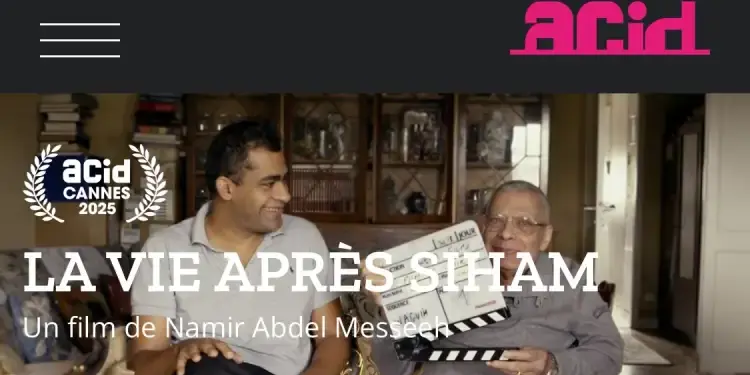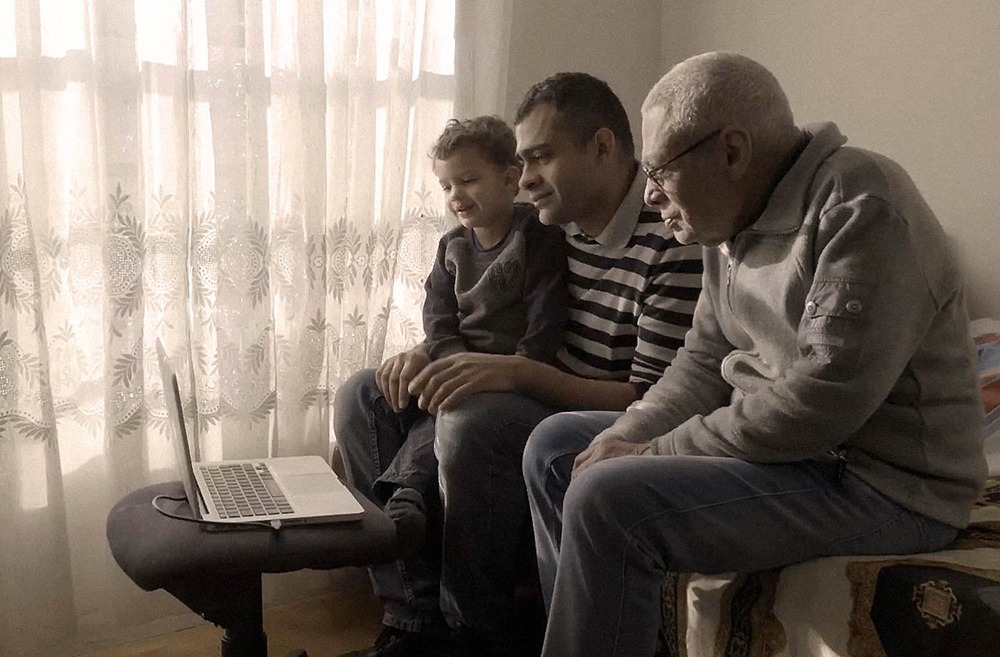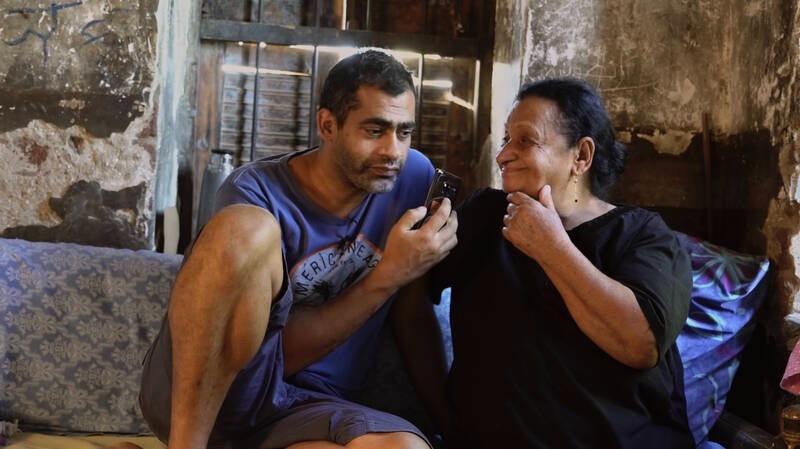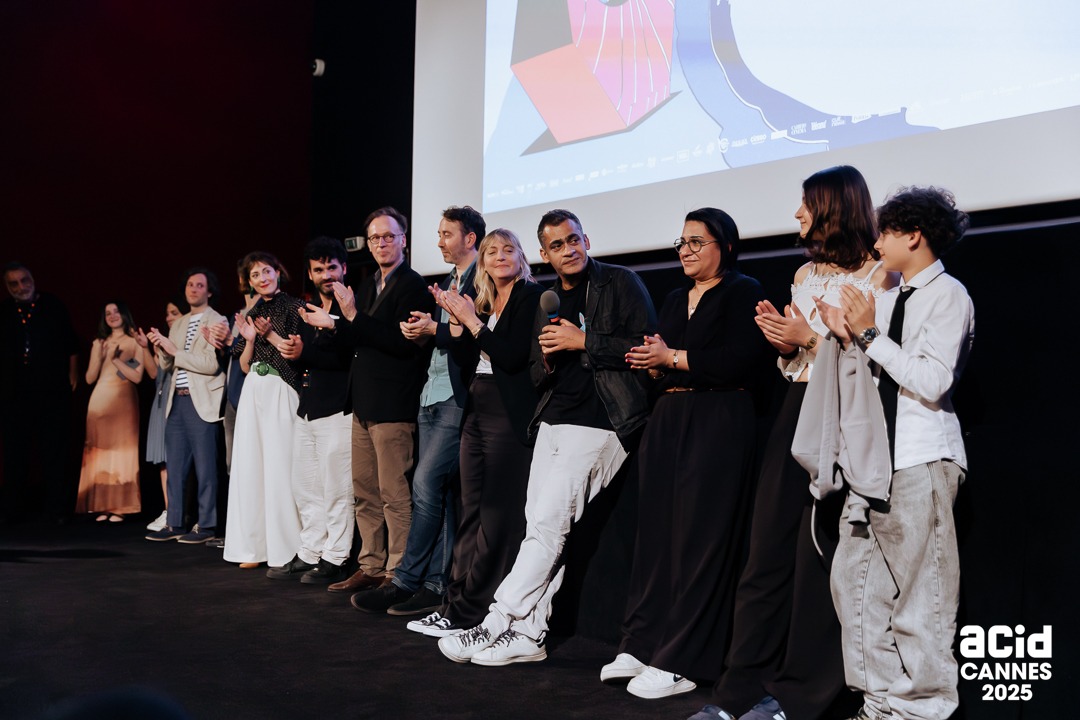With “La Vie after Siham”, presented at Cannes 2025 in the selection of ACID, the Franco-Egyptian director Namir Abdel Messeeh delivers a documentary of rare emotional intensity. This autobiographical film, both a mourning newspaper, a deeply personal family investigation and cinematographic gesture, confirms the singularity of its author, already praised for the very beautiful “the Virgin, the Copts and me” in 2011, a film which mixed documentary and reconstruction, and which had won the Tanit of Documentary Silver with Carthage Cinematographic Days in 2012.
Born in Paris in 1974 in an Egyptian Coptic family, trained at the Femis, Namir Abdel Messeeh has always registered his work in an exploration of multiple identities, between France and Egypt, between inherited beliefs and critical gaze. In Life after Sihamhe continues this intimate quest by returning to a promise made to his mother before his death: telling his story. The film thus becomes not only a portrait from beyond the grave, but also an act of loyalty, repair and transmission.
A promise as a starting point
The film opens with a loss: that of the mother, Siham, central figure of the story, disappeared before the father, Waguih. Eight years later, he died in turn, and the director, their son, finds himself alone in front of a double mourning. Furthermore, he is confronted with a mission he assigned himself: telling their story, and by extension, his.
What makes the task more complex is that Namir Abdel Messeeh is a documentary maker accustomed to capturing reality without always soliciting the consent of those he films. However, this time, it is his own intimacy that he must explore. It is no longer just a question of observing, but of questioning, feeling, of confronting family silences, divergent stories, lacunar memories. And above all, to indulge.
An emotional and sensory collage
The formatting of this intimate quest takes a fragmentary structure, which marries the very nature of memory. Life after Siham is a kaleidoscopic film that mixes family archives, contemporary filming, super 8 sequences and extracts from old Egyptian films, especially those of Youssef Chahine, a tutelary figure that hovers on the film like an artistic double. The result is a visual and emotional collage, where each image summons a memory, an absence or an echo.
The camera dwells on the father’s gestures, on the objects left by the mother, on the places where she lived. She also films the hesitations of the filmmaker himself, her doubts, her clumsiness, her pain. We see him questioning, remembering, sometimes going around in circles. The film does not hide anything from these moments of loss of control, and it is in this very sincerity that it finds its strength.
Memory as a battlefield
One of the most exciting dimensions of the film lies in its relation to the truth. Starting with “the official version” of family history, as it is told in meetings, Namir Abdel Messeeh gradually discovers that the stories of his mother and his father contradict each other, that certain events have been tus or embellished, that memory is a moving, unstable territory. The documentary then becomes an investigation, but an investigation without final resolution: the real is multiple, and each version has its legitimacy.
This confrontation with parental stories gives the film an almost psychoanalytic dimension. It is no longer just a question of paying tribute to the dead, but of understanding what they have bequeathed to us, consciously or not. And this legacy is ambivalent: it contains love, of course, but also contradictions, unsaid, injuries.
The quest for a place of belonging
If the film is deployed between France and Egypt, it is because family history itself is crossed by exile. The parents left their country of origin, but never really gave it up. And the son, born in France, navigates between two cultures, two languages, two ways of being in the world.
Life after Siham Thus questions the notion of “native country”: is it a land, a language, a memory? The film does not give a clear -cut response, but it shows with acuity how much the feeling of belonging can be vague and important for immigration children. Through the photos, songs, films, a whole section of common history between Egypt and the Coptic diaspora in France, hollow.
The political dimension of the film is also present, but still in the background. There is no militant speech, but constant attention to what “being Arab”, “being Egyptian”, “being French” means, when these identities are lived at the crossroads of several memories.
A catharsis by cinema
More than a mourning film, Life after Siham is a transformation film. He does not try to fix the past, but to question him, to bring out a meaning, sometimes painful, sometimes saving. The promise made to the mother thus becomes a form of moral contract, which the director honors with delicacy, without pathos, but with a sensitivity on edge.
As in his previous films, Namir Abdel Messeeh is not afraid of self -mockery, doubt, imperfection. He films his own vulnerability with rare honesty. And it is this vulnerability, fully assumed, which touches and remains.
The cinema, for him, is a place of elaboration of reality, a tool to say the inexpressible, to repair intimate breaches, to mourn – not by forgetting, but by transforming the absence into active memory. It is also, perhaps, a way of becoming a father in turn, by transmitting what we have received, or what we tried to understand.
A warm welcome and international recognition
The screening of the film in Cannes brought together the entire team, including the Egyptian producers, in an atmosphere of sincere appreciation and shared enthusiasm, both the public and the criticism. This success is part of a trajectory already marked by significant recognition in Egypt and in the Arab world.
Life after Siham In 2021 received two prizes from the sponsors of the Cairo Film Connection, Art and Ergo, in support of new cinematographic voices in the Arab world. This aid allowed the production of this remarkable documentary who was able to capture the attention of Cannes festival -goers. This institutional support highlights the importance of platforms such as Cairo Film Connection in supporting ambitious projects in the region.
Mohamed Sayed Abdel Rahim, head of the Cairo Industry Days at the Cairo International Film Festival, expressed his great satisfaction as to the warm welcome for the film during his first: “We are extremely proud to see one of the projects of the Cairo Film Connection knowing such international success and such recognition in a festival as prestigious as Cannes. This success illustrates the importance of support for young Arab talents and highlights the catalyst role of Cairo Film Connection for ambitious cinematographic projects. »»
This success also illustrates the growing role of the Cairo International Film Festival and its Industry Platform in the development of Arab cinema, by offering its talents visibility on international scenes and strengthening the presence of Egyptian and Arabian creators in the major global forums.
Neïla Driss












